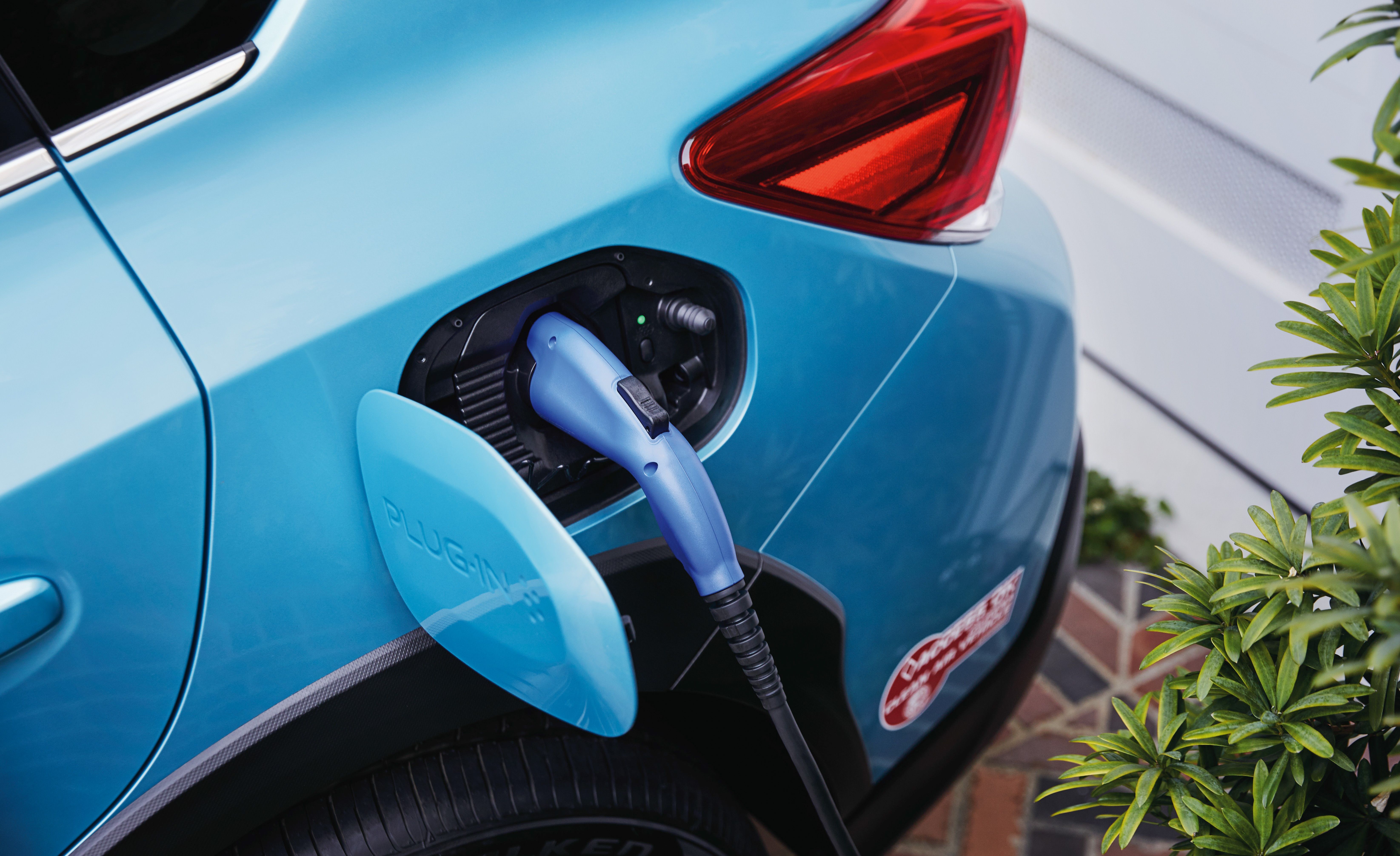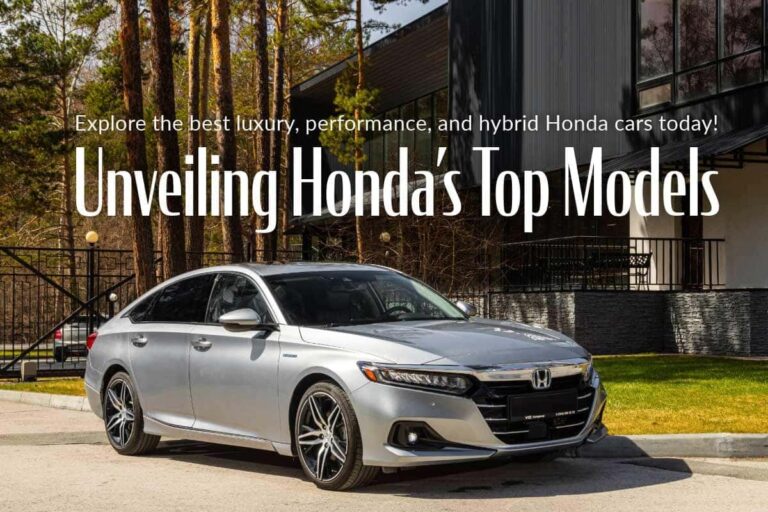Are you considering a new car and weighing your options? The buzz around hybrid cars is hard to ignore.
They’re often hailed as the perfect blend of efficiency and performance. But are they really worth it for you? Deciding on a hybrid car isn’t just about keeping up with trends; it’s about understanding how it fits into your life and meets your unique needs.
Imagine saving money on fuel, reducing your carbon footprint, and enjoying a smooth, quiet ride. But what about the upfront cost? And are the savings really as impressive as they sound? These questions are crucial, and getting the right answers can save you time and money. Stay with us as we unravel the truth behind hybrid cars, helping you make an informed decision that feels good for both your wallet and the planet.
Cost Efficiency
Cost efficiency is a key factor when deciding if hybrid cars are worth the investment. While they may seem expensive upfront, they promise savings in various aspects. Let’s break down the costs involved and see how they stack up against traditional vehicles.
Initial Purchase Price
Hybrid cars often come with a higher initial purchase price compared to conventional cars. This price difference can be a hurdle for many buyers. However, consider the long-term savings they offer. Would you rather pay more now and save later or stick to lower upfront costs?
Despite the higher price, some governments offer incentives. Tax credits and rebates can reduce the initial cost. This makes hybrids more accessible. Check if your local area offers such benefits.
Fuel Savings
One of the biggest advantages of hybrid cars is fuel efficiency. They use less gasoline, which means fewer trips to the pump. Imagine saving hundreds of dollars each year on fuel. That’s more money in your pocket.
Hybrid engines combine electric power with gasoline. This reduces fuel consumption significantly. If you drive long distances often, these savings can be substantial.
Maintenance Costs
Maintenance costs for hybrid cars can be surprisingly low. Their engines experience less wear and tear. This means fewer repairs and lower service costs.
However, hybrids have complex systems. You might need specialized mechanics for certain repairs. This can increase costs if issues arise. But regular upkeep is usually straightforward and affordable.
Think about the overall picture. Are the savings on fuel and maintenance worth the initial investment for you? Consider your driving habits and budget. Would a hybrid be a smart choice for your lifestyle? Engage with these questions to make an informed decision.

Credit: www.linkedin.com
Environmental Impact
When considering the switch to hybrid cars, the environmental impact is a significant factor. While these vehicles promise reduced pollution, it’s crucial to understand the full picture. Let’s break down the environmental aspects of hybrid cars, focusing on carbon emissions, energy consumption, and recycling and disposal.
Carbon Emissions
Hybrid cars are often praised for their lower carbon emissions compared to traditional gasoline vehicles. By combining an electric motor with a gasoline engine, they emit fewer greenhouse gases. This means less air pollution and a cleaner atmosphere.
Imagine cutting your carbon footprint by simply choosing a different car. Hybrids achieve this by using their electric motor at low speeds, which is when traditional cars emit the most pollution. Have you ever thought about how much cleaner the air could be if more people made this choice?
Energy Consumption
Energy consumption is another critical area where hybrids excel. They use regenerative braking, which converts the energy usually lost during braking into electricity to recharge the battery. This smart use of energy means fewer trips to the gas station and more savings for you.
Consider how much energy is wasted in conventional cars, which only rely on gasoline. Hybrids cleverly optimize energy use, making them more efficient. Could this be the future of driving, where every drop of energy is used wisely?
Recycling And Disposal
Recycling and disposal of hybrid car components pose unique challenges. The batteries in these vehicles contain materials that require careful handling. However, the auto industry is making strides in improving recycling processes to reduce environmental harm.
Think about the life cycle of a car and how its end affects the environment. Hybrids have parts that can be recycled more effectively than older car models. Are you ready to contribute to a more sustainable future by choosing a car with a greener lifecycle?
In the quest for eco-friendly transportation, hybrid cars offer compelling advantages. By understanding their environmental impact, you can make informed decisions that benefit both you and the planet.
Performance And Driving Experience
Hybrid cars have become popular for their eco-friendly benefits. But what about their performance and driving experience? Many drivers wonder how these vehicles stack up against traditional gas-powered cars. Understanding the nuances of acceleration, handling, and noise levels is key. Let’s dive into what makes hybrid cars unique.
Acceleration And Speed
Hybrid cars often use a combination of electric and gas engines. This setup can offer a balanced acceleration. Electric motors deliver instant torque, providing quick starts. Some hybrids excel in city driving due to this feature. High-speed performance may vary between models. It’s important to check specific car reviews before buying.
Handling And Ride Comfort
Handling in hybrid cars can be smooth and responsive. Many models feature advanced suspension systems for comfort. The extra weight of batteries can affect handling. Yet, manufacturers strive to balance this with design. Pay attention to test drives to gauge ride quality.
Noise Levels
Hybrids are known for their quiet operation. Electric motors produce minimal noise compared to gas engines. This means a peaceful ride, especially in urban areas. During highway driving, noise may increase. But overall, hybrids offer a serene driving experience. Consider the noise factor as part of the decision process.
Technology And Features
Hybrid cars are a blend of electric and gasoline technologies. They offer unique advantages through their advanced features. Understanding these can help you decide if a hybrid suits your needs.
Hybrid Engine Technology
Hybrid engines use both electric and gasoline power. This combination boosts fuel efficiency. The electric motor handles low-speed driving. The gasoline engine kicks in at higher speeds. Regenerative braking captures energy usually lost. This energy powers the electric motor. Overall, hybrids reduce fuel consumption and emissions.
Advanced Safety Features
Hybrid cars often include top safety features. Lane-keeping assist helps you stay centered. Blind-spot monitoring warns of unseen vehicles. Automatic emergency braking prevents collisions. These features protect you and your passengers. Safety is a key selling point for hybrids.
Infotainment And Connectivity
Hybrids offer modern infotainment systems. Touchscreen displays are standard. They provide easy access to navigation and music. Bluetooth connectivity lets you sync your devices. Voice controls keep your hands on the wheel. Staying connected is simple and safe in a hybrid.
Long-term Investment
Thinking about buying a hybrid car? Consider its long-term investment value. Hybrid cars can be a wise choice for future savings and benefits. Understanding their value helps make an informed decision.
Resale Value
Hybrid cars often have strong resale value. Buyers seek fuel-efficient vehicles, and hybrids fit the bill. This demand keeps their value stable over time. When selling a hybrid, owners may recover a significant portion of their initial investment. A well-maintained hybrid attracts many potential buyers.
Warranty And Longevity
Hybrid cars come with impressive warranties. These warranties offer peace of mind and cover key components. Battery packs, a major part of hybrids, usually have long warranties. This means lower repair costs during ownership. With proper care, hybrid cars can last many years. Longevity adds to their value as a long-term investment.
Market Trends And Future Prospects
The market for hybrid cars is growing. Environmental awareness increases their popularity. More manufacturers are producing hybrid models. This trend suggests hybrids will remain in demand. As technology improves, hybrids become even more efficient. Investing in a hybrid car now could benefit you in the future.

Credit: www.caranddriver.com
Consumer Perspective
Hybrid cars offer a mix of fuel efficiency and eco-friendliness. They reduce fuel costs and emissions, appealing to environmentally conscious consumers. Weighing initial costs and long-term savings helps determine their value.
Consumer Perspective When considering whether hybrid cars are worth the investment, understanding the consumer perspective is crucial. Many drivers are curious about how hybrids fit into their daily lives and whether they truly offer the benefits promised. Let’s dive into what real consumers have to say about their hybrid experiences.Customer Satisfaction
Many hybrid owners report high levels of satisfaction. They appreciate the fuel savings and the reduced environmental impact. In urban areas, where stop-and-go traffic is common, hybrids shine with their efficiency. However, satisfaction goes beyond just savings. Drivers often mention the smooth, quiet ride as a highlight. This unexpected comfort can make long commutes more enjoyable. Have you ever considered how much smoother your drive could be with a hybrid?Common Concerns
Despite their benefits, hybrids aren’t without concerns. Some consumers worry about battery life and replacement costs. While manufacturers provide warranties, the thought of future expenses lingers. Another frequent concern is the initial purchase price. Hybrids tend to be more expensive than their gasoline counterparts. Yet, many find that the savings on fuel eventually balance out the extra cost. What concerns would you have before making the switch?User Testimonials
Real-life experiences can provide valuable insights. Jane, a city commuter, shares that her hybrid has cut her fuel costs by half. She loves the peace of mind that comes with less environmental impact. John, a suburban dad, was initially skeptical about performance. After a test drive, he was pleasantly surprised by the acceleration and handling. His family now enjoys weekend trips without constant fuel stops. How do these testimonials align with your expectations? In the end, the decision to invest in a hybrid car often boils down to your personal priorities and lifestyle. What matters most to you?
Credit: www.caranddriver.com
Frequently Asked Questions
What Are Hybrid Cars?
Hybrid cars use both an internal combustion engine and an electric motor. They aim to reduce fuel consumption and emissions. By switching between power sources, they offer better efficiency. Hybrid cars often have regenerative braking, which helps recharge the battery while driving.
Do Hybrid Cars Save Money On Fuel?
Yes, hybrid cars save money by using less fuel. Their dual power system allows for better fuel efficiency. They are especially cost-effective for city driving. Over time, the fuel savings can offset the initial higher purchase price.
How Do Hybrid Cars Impact The Environment?
Hybrid cars are environmentally friendly by reducing emissions. They use less gasoline and produce fewer pollutants. Their electric motors help in reducing carbon footprint. Choosing a hybrid can contribute to cleaner air and a healthier planet.
Are Hybrid Cars Reliable?
Hybrid cars are generally reliable and have proven technology. They require regular maintenance like conventional cars. Battery life is long-lasting, with many warranties covering it. Manufacturers have improved hybrid technology over the years, increasing their dependability.
Conclusion
Hybrid cars offer many benefits for today’s drivers. They save on fuel costs and reduce emissions. This makes them kinder to the planet. Many people find them a smart choice. Yet, the initial cost can be high. Consider your budget and driving needs.
Think about how much you drive. Weigh the pros and cons carefully. Hybrid cars may suit your lifestyle. Or not. Research and test-drive before deciding. This ensures you make the right choice. Make an informed decision for your future. And for the environment.
